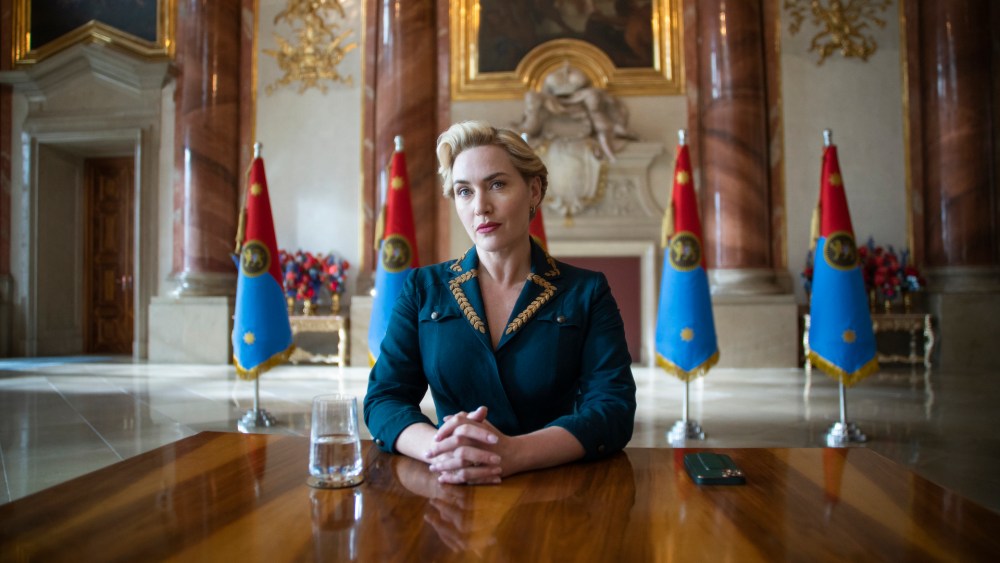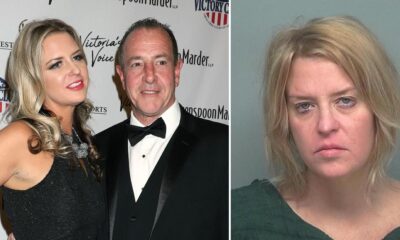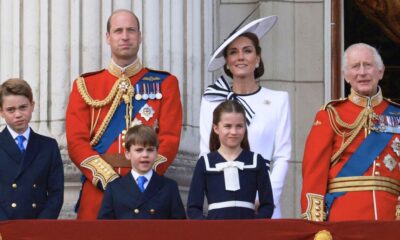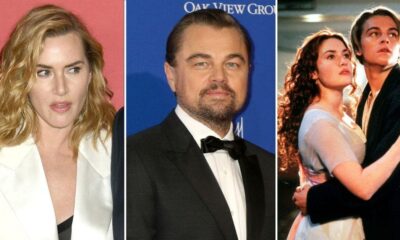Entertainment
How the score of ‘The Regime’ reflected Kate Winslet’s comic and chaotic dictatorship

‘The Regime’ showrunner Stephen Frears is a man of few words when it comes to music – at least according to award-winning composer Alexandre Desplat. But that wasn’t a bad thing. The two had worked together before, and Desplat liked that approach because it gave him free rein to come up with compositions that he could bring back to the director.
Desplat was recruited for HBO’s “The Regime,” starring Kate Winslet as the chancellor who rules an unnamed Central European country. He looked to Winslet’s acting, design and costumes for inspiration. “The music had to be charged with humor, but not too much,” he says. “There also had to be an ominous presence. There’s something uneasy about these people. They’re almost sad, and they’re crazy and unique, so the music had to show that desperate world.”
He found himself writing music layered with “Mitteleuropa sounds.” The music is never really cheerful. It’s a strange mix of melancholy and joy in the music you hear,” Desplat explains.
The world of the show, with enormous palaces and a country ready to go to war, dictated that there was a need for a large orchestra to lay the foundation for the score. In addition, Desplat recruited musicians who played the balalaika (a Russian stringed instrument) to create a mix of sounds. He added the cimbalom, which, combined with the orchestrations, brought an energy to the score.
When Frears first heard a cue from Desplat, the showrunner suggested it be featured in the main title theme. “It starts every episode and has the scale of a major motion picture,” says Frears. “When we were filming in Vienna, they gave us five palaces, so in my head I always conceived of this as a huge movie, and a piano wouldn’t work. It needed scale and substance.”
As Desplat looked at Winslet, he thought about her theme. Here was a character he saw as someone who dressed in ridiculous colors and loved himself. “There was something pompous about her, and my challenge was to translate that into music.
Music isn’t funny, and you can’t translate humor into music, so it had to be about the tempo, the stops and starts and the arrangement of the instruments,” Desplat explains. “Her theme was not meant to be funny. It was disturbing.”
For the final three episodes, Desplat passed the scoring baton to composer Alex Heffes. In honor of that “musical handshake,” Heffes used some of Desplat’s music in the opening of Episode 4. But as the show moves in a darker direction, so does the music, with Heffes guiding the journey. “At the end I summarized Alexandre’s main theme and combined it with the new material I had written, so that it felt like a bow had been placed on the whole piece.”
What helps Heffes inject a new sound into the score is the arrival of Ed Keplinger, former Chancellor and prisoner of Hugh Grant. ‘With his character you don’t know who he is. Is he good? Isheupton not well?’ Can you trust him? So it was interesting to make his music seem like quicksand,” Heffes explains.
Ed’s theme allowed Heffes to expand the instrumental palette, and he brought in a choir. But instead of having anything melodious and harmonious, Heffes gave the sound a throaty percussive quality that accompanied the grunts, groans and stomps of the choir.
“I added strange combinations of a didgeridoo, a ukulele and a brass band to trip the listener,” says Heffes. “They think they know where this show is going, but they don’t.”
Since the tone of the show was darkly funny and filled with Frears’ dark humor, Heffes made sure to map out how the music would play in the final two episodes. “I’ve marked the peaks and valleys, so where the show is brutal, the music isn’t too,” says Heffes.













